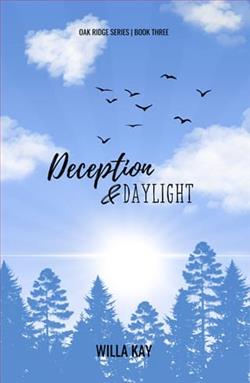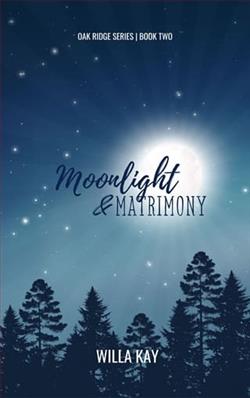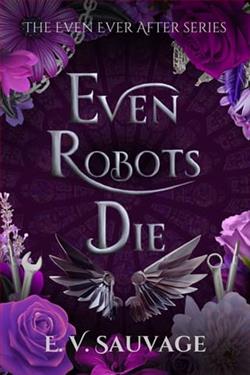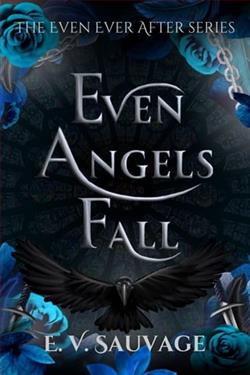Page 34 of Tilting the Balance (Worldwar 2)
Teerts stared at him. He was even more appalled than he had been when his killercraft got shot down. That had affected only his own fate. Now he had to worry about whether the Race had any idea what the Tosevites were up to. They might be barbarians-by everything Teerts had seen, they were barbarians-but they were also alarmingly knowledgeable… which meant it behooved Teerts to be more than cautious in his answers. He’d have to do his best to avoid giving away any information at all.
He took so long figuring that out that Okamoto snapped, “Don’t waste time dreaming up lies. Answer Dr. Nishina.”
“I beg your pardon, superior sir,” Teerts said, and added, “Gomen nasai-so sorry,” from his limited stock of Nipponese. “Part of the problem is my not having enough words to give a proper answer, and another part is my own ignorance, for which I again beg pardon. You must remember that I am-I was-a pilot. I had nothing at all to do with uranium.”
“You certainly were glib enough talking about it a little while ago,” Okamoto said. “You do not want to make me disbelieve you. Some of the tools back there are very sharp, others can be made hot, and still others can be hot and sharp at the same time. Do you want to learn which is which?”
“No, superior sir,” Teerts gasped with utmost sincerity. “But I truly am ignorant of the knowledge you seek. I am only a pilot, not a nuclear physicist. What I know of flying, I have freely told you. I am not an expert in the matter of atomic weapons. What little I know of nuclear energy I learned in school as I was growing from hatchlinghood. It is no more and no less than any other ordinary male of the Race would know.”
“This is difficult to believe,” Okamoto said “You spoke quite a lot about uranium just a little while ago.”
That was before I realized how much you knew about it, Teerts thought. He wondered how he was going to escape with his integument intact. He knew he couldn’t lie to the Nipponese; he didn’t know how much they knew, and the only way to find out-getting caught-would involve the painful penetration of that integument.
He said, “I do know that atomic weapons do not necessarily use uranium alone. Some involve, I am not sure how, hydrogen as well-the very first element.” Let the Japanese chew on that paradox for a while, he thought: how could a weapon involve the lightest and heaviest elements at the same time?
After Okamoto interpreted, the team of Big Ugly scientists chattered for a while among themselves. Then Nisbina, who seemed to be their spokesman, put a question to Okamoto. The major translated for Teerts: “The uranium explosion, then, is hot enough to make hydrogen act as it does in the sun and convert large amounts of matter to energy?”
Horror filled Teerts. Every time he tried to escape from this hideous mess in which he found himself, he sank deeper instead. The Big Uglies knew about fusion. To Teerts, the product of a civilization that grew and changed at a glacial pace, knowing about something was essentially the same as being able to do it. And If the Tosevites could make fusion bombs…
Major Okamoto knocked him out of his appalled reverie by snapping, “Answer the learned Dr. Nishina!”
“I beg your pardon, superior sir,” Teerts said. “Yes, everything the learned, doctor says is true.”
There. He’d done it Any day now, he feared, the Nipponese would start using nuclear weapons against the Race on the mainland-which still struck Teerts as nothing more than a big island; he was used to water surrounded by land, not the other way around.
He heard Okamoto say “Honto,” confirming his answer to the Nipponese scientist’s question. The cold of the interrogation room sank deeply into his spirit. The Nipponese hardly seemed to need him. By their questions, they had all the answers already, just waiting to be put into practice.
Then Nishina spoke again: “We return to the question of getting the lighter uranium, the kind which is explosive, out of the other, more common, type. This as yet we have not succeeded in doing; indeed, we have only just begun the attempt. That is why we will learn from you how the Race solves this problem.”
Teerts needed a moment to understand that The Race had been shocked when they reached Tosev 3 to discover how advanced the Big Uglies were. Before Teerts was captured, pilots had talked endlessly about that; they’d expected no opposition, and here the Tosevites were, shooting back-not very well, and from inadequate aircraft, but shooting back. How could they have learned to build combat aircraft in the eight hundred local years since the Race’s probe examined them?
Now, for the first time, Teerts got a glimmering of the answer. The Race made change deliberately slow. When something new was discovered, extrapolationists performed elaborate calculations to learn in advance how it would affect a long-stable society, and how best to minimize those effects while gradually acquiring the benefits of the new device or principle.
With the Big Uglies, the tongue was on the other side of the mouth. When they found something new, they seized it with both hands and squeezed until they got all the juice out. They didn’t care what the consequences five generations-or even five years-hence would be. They wanted advantages now, and worried about later trouble later, if at all.
Eventually, they’d probably end up destroying themselves with that attitude. At the moment, it made them far more deadly opponents than they would have been otherwise.
“Do not waste time thinking up lies. I warned you before,” Major Okamoto said. “Tell Dr. Nishina the truth at once.”
“By what I know, superior sir, the truth is that we do not use any of these methods,” Teerts said. Okamoto drew back his hand for a slap. Afraid that would be the start of a torture session worse than any he’d yet known, Teerts went on rapidly, “Instead, we use the heavier form of uranium: isotope is the term we use.”
“How do you do this?” Okamoto demanded after a brief colloquy with the Nipponese scientists. “Dr. Nishina says the heavier isotope cannot explode.”
“There is another element, number ninety-four, which does not occur in nature but which we make from the heavier, nonexplosive-Dr. Nishina is right-isotope of uranium. This other element is explosive. We use it in our bombs.”
“I think you are lyi
ng. You will pay the penalty for it, I promise you that,” Okamoto said. Nevertheless, he translated Teerts’ words for the Big Uglies in the white coats.
They started talking excitedly among themselves. Nishina, who looked to be the senior male, sorted things out and relayed an answer to Okamoto. He said to Teerts, “I may have been wrong. Dr. Nishina tells me the Americans have found this new element as well. They have given it the name plutonium. You will help us produce it.”
“Past what I have already said, I know little,” Teerts warned: Despair threatened to consume him. Every time he’d revealed something new to the Nipponese, it had been with the hope that the technical difficulties of the new revelation would force them off the road that led toward nuclear weapons. Instead, everything he told them seemed to push them further down that road.
He wished a plutonium bomb would fall on Nagasaki. But what were the odds of that?
VI
WELCOME TO CHUGWATER, POPULATION 286, the sign said. Colonel Leslie Groves shook his head as he read it. “Chugwater?” he echoed. “Wonder why they call it that.”
Captain Rance Auerbach read the other half of the sign. “ ‘Population 286,’ ” he said. “Sounds like Jerkwater’d be a better name for it.”
Groves looked ahead. The cavalry officer had a point. It didn’t look like much of a town. But cattle roamed the fields around it. This late in winter, they were on the scrawny side, but they were still out there grazing. That meant Chugwater had enough to eat, anyhow.
People came out to look at the spectacle of a cavalry company going through town, but they didn’t act as impressed as townsfolk had in Montana and farther north in Wyoming. One boy in ragged blue jeans said to a man in overalls who looked just like him, “I liked the parade a couple of weeks ago better, Dad.”
“You had a parade through here a couple of weeks ago?” Groves called to a heavyset man whose black coat, white shirt, and string tie argued that he was a person of some local importance.















